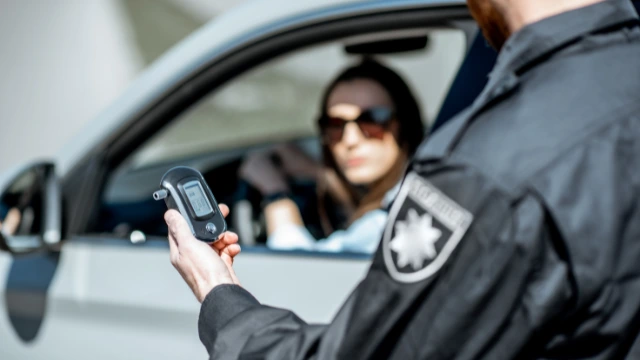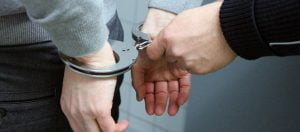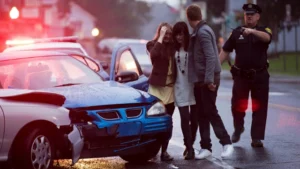

Getting pulled over for drunk driving can be scary, but knowing how to challenge breathalyzer results might help you defend yourself. Let’s dive into what breathalyzers are, how they work, and ways to question their accuracy.
What is a Breathalyzer?
A breathalyzer is a device that measures how much alcohol is in your breath. When you drink alcohol, some of it ends up in your lungs and comes out when you breathe. The breathalyzer tries to figure out how much alcohol is in your blood by measuring your breath.
Police use breathalyzers to check if someone has been drinking too much to drive safely. In most places, if your blood alcohol concentration (BAC) is 0.08% or higher, you can get in trouble for drunk driving.
How Accurate are Breathalyzers?
Breathalyzers aren’t perfect. Sometimes, they can make mistakes. Studies have shown that breathalyzer results can be off by as much as 15% from your actual blood alcohol level. This means if your real BAC is 0.08%, a breathalyzer might show anywhere from 0.068% to 0.092%.
Common Ways to Challenge Breathalyzer Results
1. Improper Calibration
Breathalyzers need to be set up correctly to work right. This is called calibration. If a breathalyzer isn’t calibrated properly, it might give wrong results. Your lawyer can ask for records to check if the breathalyzer was calibrated correctly.
2. Medical Conditions
Some health problems can make breathalyzer results wrong. For example, people with diabetes or acid reflux might have higher breathalyzer readings even if they haven’t been drinking. If you have a medical condition, make sure to tell your lawyer.
3. Environmental Factors
Things in the air around you can sometimes affect breathalyzer results. For instance, if you work with paint or gasoline, the fumes might make the breathalyzer think you’ve been drinking when you haven’t.
4. Improper Test Administration
Police officers need to follow certain rules when giving a breathalyzer test. For example, they’re supposed to watch you for 15-20 minutes before the test to make sure you don’t burp or put anything in your mouth. If they don’t follow these rules, the test results might not be valid.
5. Mouth Alcohol
If you’ve just used mouthwash, eaten certain foods, or burped, there might be alcohol in your mouth that isn’t in your blood. This can make the breathalyzer reading higher than it should be.
Case Study: Joe’s DUI Challenge
Let’s look at a real-life example of how someone challenged their breathalyzer results. We’ll call him Joe.
Step 1: Joe was driving home from a friend’s house when he was pulled over for swerving. The officer smelled alcohol and asked Joe to take a breathalyzer test.
Step 2: Joe’s breathalyzer result showed a BAC of 0.09%, just over the legal limit. He was arrested for DUI.
Step 3: Joe hired a lawyer who specialized in DUI cases. The lawyer asked for all the records related to Joe’s breathalyzer test.
Step 4: The lawyer found out that the breathalyzer used in Joe’s test hadn’t been calibrated in over six months. The rules said it should be calibrated every three months.
Step 5: Joe also told his lawyer that he had acid reflux. The lawyer got a doctor’s note explaining how this condition could affect breathalyzer results.
Step 6: In court, Joe’s lawyer presented evidence about the uncalibrated breathalyzer and Joe’s medical condition. He argued that these factors made the breathalyzer results unreliable.
Step 7: The judge agreed that there were too many questions about the accuracy of the breathalyzer test. The DUI charges against Joe were dropped.
Joe’s case shows how important it is to look closely at breathalyzer results. Even though the test said Joe was over the limit, there were good reasons to doubt its accuracy.
Why Challenging Breathalyzer Results Matters
Challenging breathalyzer results is important because a DUI conviction can have serious consequences. It can affect your job, your ability to drive, and even your freedom. By questioning the accuracy of breathalyzer results, you’re protecting your rights and making sure you’re treated fairly.
Remember, just because a breathalyzer says you’re over the limit doesn’t always mean you are. Many factors can affect the results, and it’s your right to challenge them if you think they’re wrong.
Frequently Asked Questions (FAQs)
- Can I refuse to take a breathalyzer test?
In most states, you can refuse, but there may be consequences like losing your license for some time. - How long does alcohol stay in your system for a breathalyzer?
It depends on many factors, but generally, a breathalyzer can detect alcohol for about 12-24 hours after your last drink. - Can eating food lower your BAC for a breathalyzer test?
Eating food before drinking can slow down alcohol absorption, but it won’t lower your BAC once the alcohol is in your system. - Do breathalyzers detect drugs other than alcohol?
Standard breathalyzers only detect alcohol. Other types of tests are needed to detect drugs. - How often do breathalyzers give false positives?
Studies have shown that breathalyzers can give false positives in up to 23% of cases.



